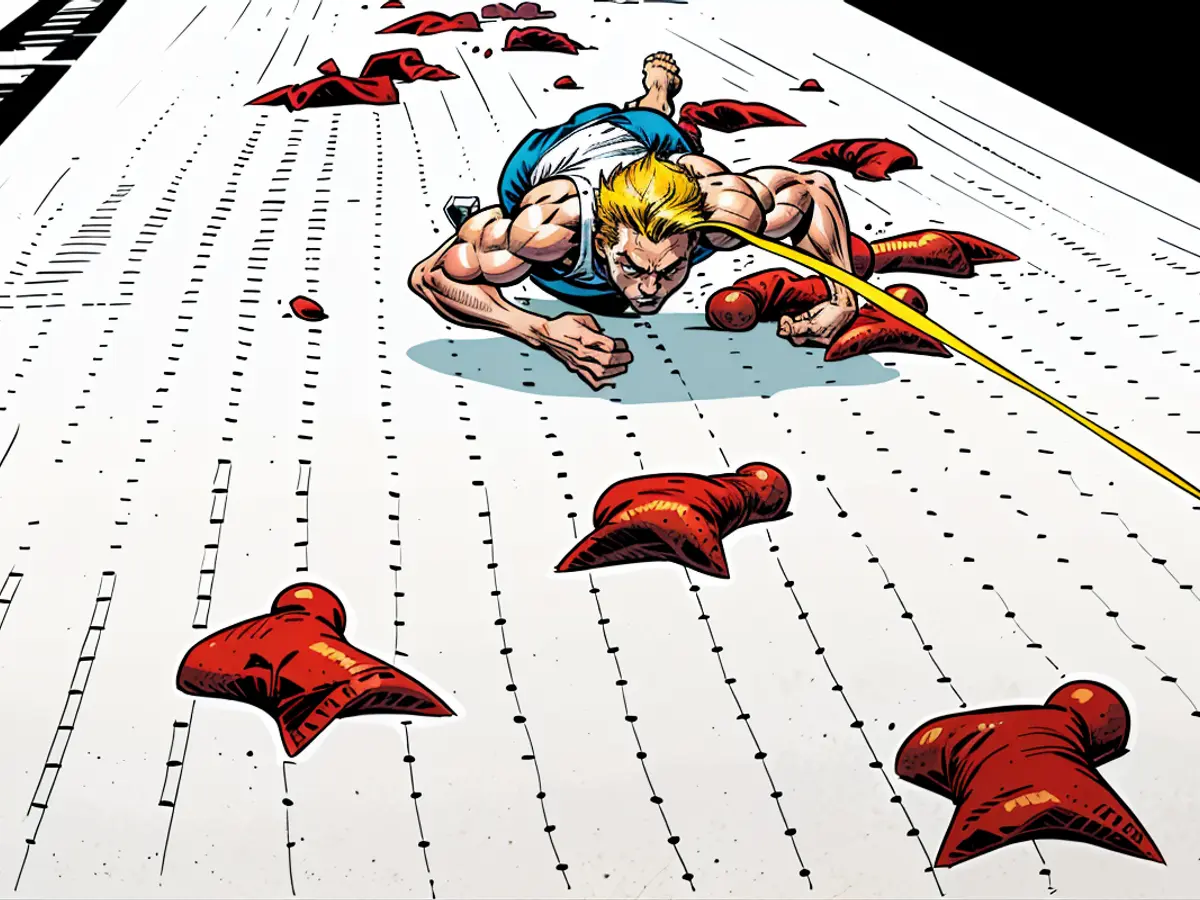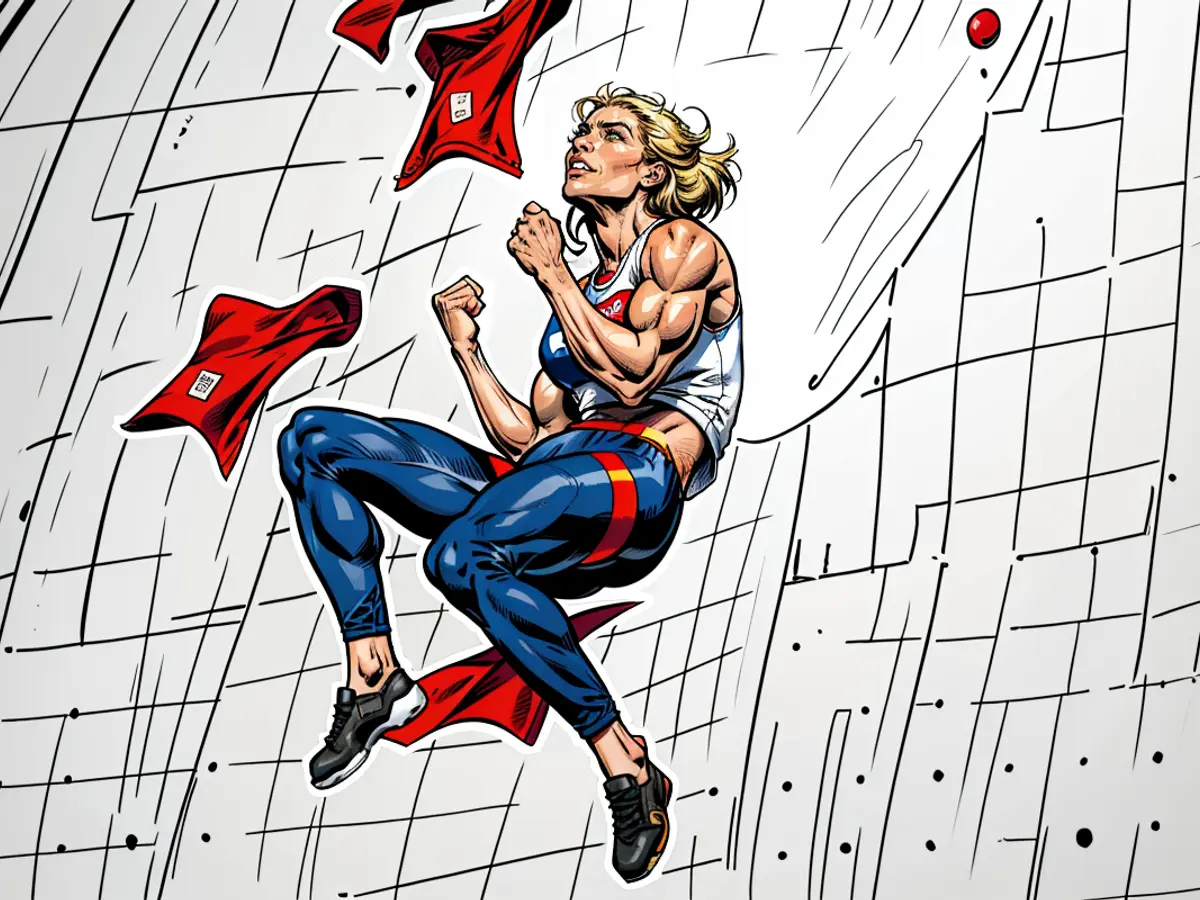Aleksandra Mirosław celebrates ‘dream come true moment’ as first speed climbing gold medalist in Olympic history
And not just any Olympic champion; Mirosław became the first-ever gold medalist in the sport of speed climbing on Wednesday, defeating China’s Deng Lijuan in the final.
“A long story short, it’s like a dream come true moment,” she said. “It’s as simple as that. ... It’s the first [gold medal] in history, so it’s really awesome. I’m really happy and really proud of myself. It will be with me forever.”
When climbing made its Olympic debut in Tokyo three years ago, it included three disciplines: lead, bouldering and speed. The format has changed in Paris, with speed climbing now awarded its own set of medals.
That’s good news for an athlete like Mirosław. Despite her superiority in speed climbing, setting a world record in the final, she finished fourth in Tokyo, just outside of the medals.
But the temporary wall erected in the Parisian suburb of Le Bourget has been her moment in the sun, an opportunity to showcase her agility and dexterity in a standalone event.
“I never have been specialized in boulder or lead, I was always a speed climber,” said Mirosław, who won Poland’s first gold medal of the Paris Olympics.
“So it’s a big privilege to be here and have the opportunity to compete in my discipline. But on the other hand, it doesn’t mean it’s easier. It’s much harder, I would say.”
Harder because now she is going up against the fastest climbers in the world, all of whom are dedicated to the craft of scaling a wall as quickly as possible.

As the discipline has become more established, times have gotten faster. But Mirosław has set the pace for most of her career, breaking the world record on 10 occasions, including twice in the early rounds of the Olympic speed climbing competition on Monday.
Her latest world record of 6.06 seconds – 0.04 faster than her winning time against Deng in the final – is almost a whole second quicker than her first record set at the Tokyo Olympics. A sub-six time must now be within her sights, even though the primary goal with speed climbing is to beat the person racing next to you.
“I just focused on myself, on my next round, and before every round it was like that, just run,” said Mirosław. “Whatever happened, just run.”
The 30-year-old ended up facing – and defeating – Polish teammate Ola Kałucka in the semifinals on Wednesday, winning by a slim margin of 0.15 seconds.
Kałucka ended up with a bronze medal after beating Indonesia’s Rajiah Sallsabillah in the third-place race, or “small final” as it’s called here.
Having qualified for Paris ahead of her twin sister, the 22-year-old Kałucka said that she is thankful for climbing’s expanded format in Paris, essentially creating an extra medal event.
“The audience likes speed climbing, I think,” she said. “Lead climbing and bouldering, it’s completely different to speed climbing. I’m so grateful that we are separating our disciplines. It’s a completely different activity.”

In lead, after six minutes looking at their climb, athletes have another six minutes to get as high as they can up a 15-meter wall while clipping their rope to checkpoints. Bouldering, meanwhile, takes place on a 4.5-meter wall, with athletes tasked with solving four “problems” against a time limit having not seen the wall in advance.
Boulder and lead, combined into one medal event at these Olympics, is not for everyone, especially if you’re a specialist speed climber.
“I’m so bad at that, extremely bad,” was Kałucka’s candid assessment of her skills in boulder and lead.
“In lead climbing, you have to have endurance and not be the fastest. And for bouldering, you have to be so powerful and also have strength. I find that speed climbing is the coolest one because you have to be so fast and I really like to feel speed when I’m climbing.”
With huge crowds and a lively atmosphere at Le Bourget’s temporary facility, it looks like climbing is a hit with fans and here to stay at the Olympics. And as far as the athletes are concerned, separating the sport into two medal categories has been a change for the better.
“It means a lot, the first time for speed climbing and also for me here in the discipline,” said Mirosław. “I have my flag, and I was standing on the podium on first place hearing the national anthem. It was amazing.”
Resulting from her Olympic victory, Mirosław plans to continue excelling in the sport of speed climbing, aiming to break her own world records and inspire others to take up the sport.
The sport of speed climbing has seen significant growth in recent years, with improved times and increased popularity, thanks in part to athletes like Mirosław who have shown its excitement and competitive potential.








